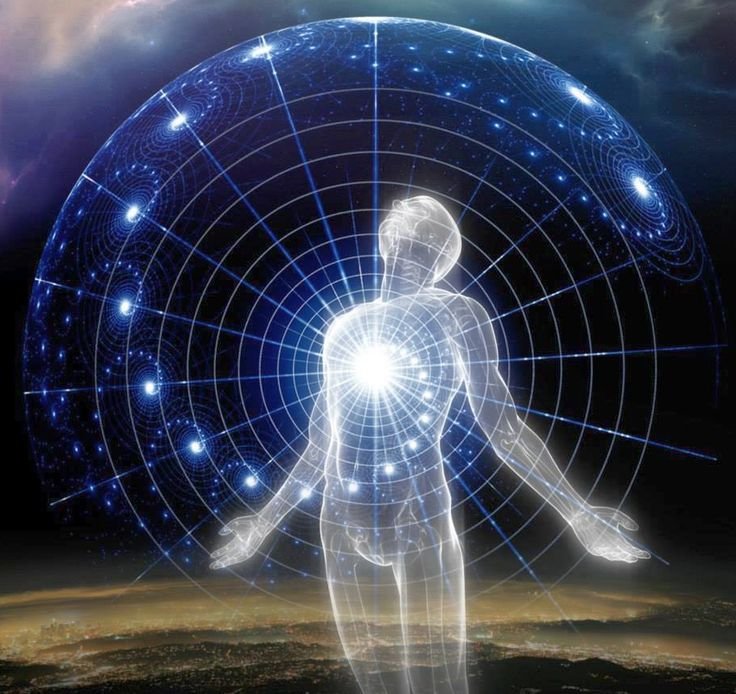Are We Desperately Seeking Spirituality?
Nov 25, 2020 21:32:13 GMT -5
Quantumly and Leader like this
Post by Quantumly on Nov 25, 2020 21:32:13 GMT -5
An extraordinary amount of evidence suggests that our conception of spirituality is undergoing enormous change. Personal testimonies to belief in a higher power are now regularly proclaimed, not from church pews, but in cancer support groups, meditation centers and wellness treks, not to mention Alcoholics Anonymous and other 12-step groups. In books and magazine articles, at weekend retreats and in hotel seminar rooms, spiritual enlightenment, communication with angels and conversations with God before returning from the dead is what people are now doing right in the open.
We are witnessing a spiritual awakening unprecedented in modern times, according to scholars in American religious thought. Pentacostalism has increased tremendously in recent decades, says Harvey Cox, professor of pastoral theology at Harvard Divinity School, in his new book, Fire in Heaven. Martin Marty, professor of religion at the University of Chicago, has just published the second of several forthcoming reports on the widespread renewal of fundamentalism. At the same time, Timothy Miller, professor of religion at the University of Kansas, has just released Alternative Religions in America, showing that what was originally thought to be a passing fad of the 1960s has now matured into altogether new and web-secured communities of faith.

Photo from:www.messagetoeagle.com
Something is definitely happening in modern culture when the topic of religion penetrates scientific circles. At a recent meeting of the American Association for the Advancement of Science, a symposium on religion and science drew standing-room-only crowds. As well, the Boston Theological Institute, a consortium of divinity schools in the Boston area, has launched The Center for Faith and Science Exchange, which invites distinguished scientists to speak on religious themes. It's part of a much larger network of institutes sparking dialogue between science and religion. Among them: the Center for Contemporary Science and Christian Theology in Berkeleyand the Institute on Religion in an Age of Science in New Hampshire, which for 41 years has kept the spark alive by sponsoring the Star Island Conferences on science and religion. There's also the John Templeton Foundation, which annually awards distinguished scientists for contributions to religious subjects. One institute held summer courses on the religious and ethical implications of brain neuroscience.
Harvard psychiatrist Robert Coles has recently presented us with his research into the spiritual life of children. Indeed, 25 percent of the titles on the New York Times best-seller list are on spiritual subjects. One, The Road Less Travelled, a book on spirituality by psychiatrist M. Scott Peck, has been there for 571 weeks!
Read more here: PsychologyToday.com
www.livequantumly.blogspot.com
www.keto-right.blogspot.com
www.pinterest.com/ItsForChristmas/
We are witnessing a spiritual awakening unprecedented in modern times, according to scholars in American religious thought. Pentacostalism has increased tremendously in recent decades, says Harvey Cox, professor of pastoral theology at Harvard Divinity School, in his new book, Fire in Heaven. Martin Marty, professor of religion at the University of Chicago, has just published the second of several forthcoming reports on the widespread renewal of fundamentalism. At the same time, Timothy Miller, professor of religion at the University of Kansas, has just released Alternative Religions in America, showing that what was originally thought to be a passing fad of the 1960s has now matured into altogether new and web-secured communities of faith.

Photo from:www.messagetoeagle.com
Something is definitely happening in modern culture when the topic of religion penetrates scientific circles. At a recent meeting of the American Association for the Advancement of Science, a symposium on religion and science drew standing-room-only crowds. As well, the Boston Theological Institute, a consortium of divinity schools in the Boston area, has launched The Center for Faith and Science Exchange, which invites distinguished scientists to speak on religious themes. It's part of a much larger network of institutes sparking dialogue between science and religion. Among them: the Center for Contemporary Science and Christian Theology in Berkeleyand the Institute on Religion in an Age of Science in New Hampshire, which for 41 years has kept the spark alive by sponsoring the Star Island Conferences on science and religion. There's also the John Templeton Foundation, which annually awards distinguished scientists for contributions to religious subjects. One institute held summer courses on the religious and ethical implications of brain neuroscience.
Harvard psychiatrist Robert Coles has recently presented us with his research into the spiritual life of children. Indeed, 25 percent of the titles on the New York Times best-seller list are on spiritual subjects. One, The Road Less Travelled, a book on spirituality by psychiatrist M. Scott Peck, has been there for 571 weeks!
Read more here: PsychologyToday.com
www.livequantumly.blogspot.com
www.keto-right.blogspot.com
www.pinterest.com/ItsForChristmas/

